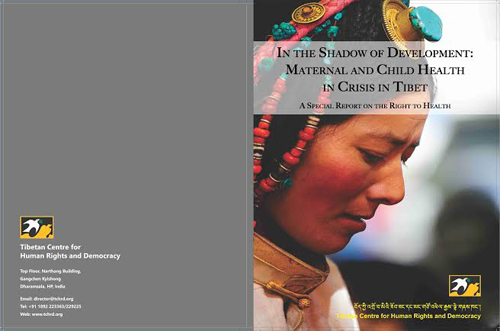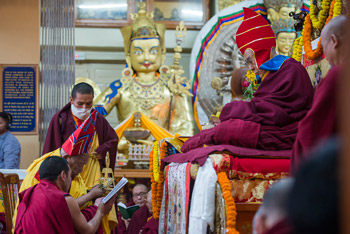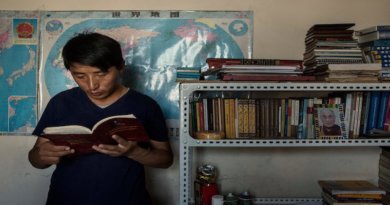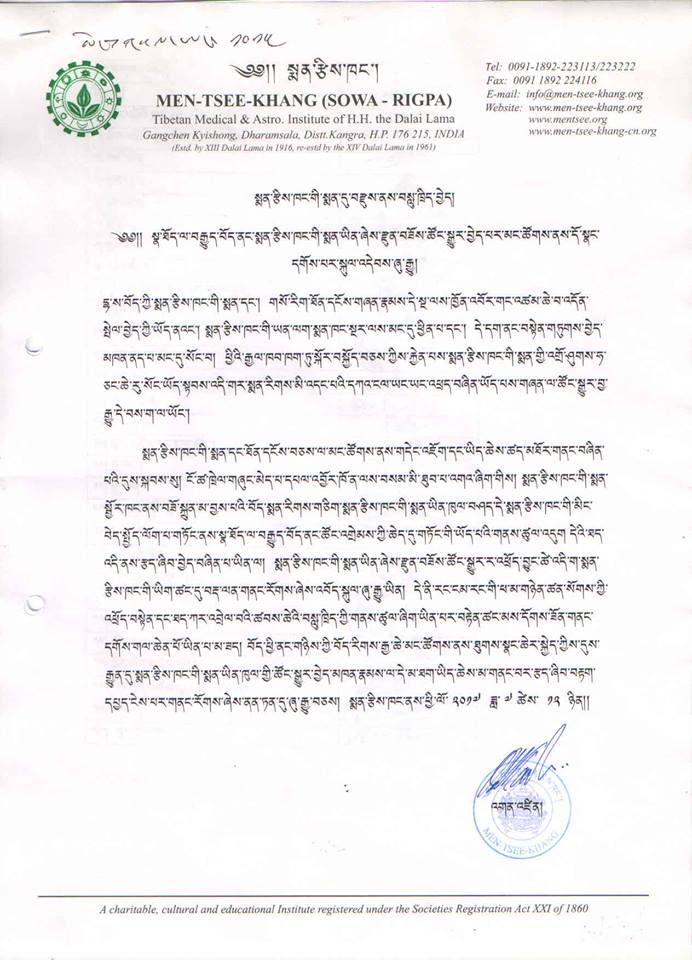Maternal and child health in Tibet deeply troubling: TCHRD
DHARAMSALA, Mar 5: Maternal and child health is the worst in Tibet despite drastic improvements in health conditions in the People’s Republic of China (PRC), says a new special report released by a rights group based here in Dharamsala.
The Tibetan Centre for Human Rights and Democracy (TCHRD) released the special report entitled, “In the Shadow of Development: Maternal and Child Health in Crisis in Tibet” on Mar 4 at a press conference held in Gangchen Kyishong, Dharamsala in the presence of Dr Tsering Wangchuk, Kalon for the Department of Health of Central Tibetan Administration.
Based on quantitative and qualitative data drawn from a variety of sources, including the Bureau of Statistics of the PRC, international organizations, NGOs currently operating in Tibet as well as data obtained from TCHRD’s survey of recent refugees from Tibet, the report documents how a failing system of public healthcare has permitted extremely poor maternal and child health to persist in Tibet, despite drastic improvements in conditions in the People’s Republic of China (PRC).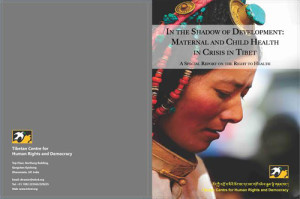
The report specifically documents how health system neglect of the rural population has permitted widespread maternal and child mortality in Tibet.
The report notes that in the Tibet Autonomous Region (TAR) in 2009, maternal and infant mortality was the highest in the PRC, 8 and 2.7 times higher than the national average respectively, and severe child malnutrition, at 3.6%, was over twice as high.
Though conditions appear better in Tibetan inhabited Provinces of Gansu, Qinghai, Sichuan and Yunnan, the report says the actual conditions experienced by Tibetan population of these Provinces are likely much more similar to the poor conditions prevailing in TAR as the official data includes the region’s overwhelmingly non-Tibetan populations.
The report determines that the PRC’s neglect of maternal and child health in Tibet constitutes a clear violation of Tibetans’ right to health and also demonstrates how poor health conditions in Tibet are masked by evaluations of health in the PRC, which largely consider aggregate national data. Most notably, the UN Millennium Development Goals campaign has failed to apprehend the severity of health inequity between Tibet and the PRC.
Ms Tsering Tsomo, Executive Director of TCHRD said PRC has taken the UN and other international organizations for a ride by claiming that it had met the Millennium Development Goals-a set of eight human development goals established by the UN for the period 2000 to 2015, out which two specifically concern the improvement of maternal and child health-before 2015 because MDG evaluations of health conditions in the PRC focus on conditions at national aggregates and fail to recognize the deeply troubling nature of maternal and child health in Tibet.
“Through this report we also try to show that even the UN has failed to carefully study the health crisis situation in Tibet. It is not only the responsibility of the PRC but also of the UN as a pioneer global organization. We would also like to urge the Chinese government to provide Tibetans-specific data in the future so that the health condition of the Tibetans becomes much clearer,” she added.
The report attributes the poor conditions of the Tibetans to the State’s centralized clinical model of health services delivery, however, the report says maternal and child health in Tibet can be transformed.
The report finds that poor health is the result of a severely inadequate system of public healthcare. “In the TAR in 2009, 33% of women and 41% of children received systematic healthcare – the lowest rates of care in the PRC and almost half the national average,” a release issued by the rights group said.
Citing two effective programs in Tibet, TCHRD highlights in its special report the potential of a decentralized, community health worker-based system of rural healthcare to drastically improve conditions in Tibet.
“Given that improvement is so readily achieved for in Tibet, it is evident that maternal and child health in Tibet is no longer the problem for development that it once was. Rather it is a miscarriage of health equity, social justice and human rights. The cost of poor health may be measured in statistics but ultimately it is paid in the lives of Tibetan women and children. TCHRD urges the government of PRC to initiate immediate widespread and meaningful action based on the findings in this report,” Peter Newman, TCHRD intern and one of the main contributors to the report, said after providing a brief summary of the report at the press conference.
Addressing the members of the press, Health Kalon Dr Tsering Wangchuk said that the poor health condition of the Tibetans inside Tibet is a concern not only of the CTA but also of every individual Tibetan and in that regard, he extended his appreciation towards TCHRD for publishing the special report on maternal and child health in Tibet.
“Though the Chinese government always makes tall claims about development in Tibet, this report clearly shows that the ground realities in Tibet do not befit those claims,” Dr Wangchuk said and added “On behalf of the Health Department of CTA, I urge the United Nations’ World Health Organization to take into consideration the poor health condition in Tibet and initiate ways to help improve the health condition of the Tibetans inside Tibet. I also urge the Chinese government and its leaders to better the health condition of Tibetans by providing equitable healthcare to Tibetans without any discrimination as health condition is directly related to human rights. As fellow human beings, human lives ought to be respected.”

